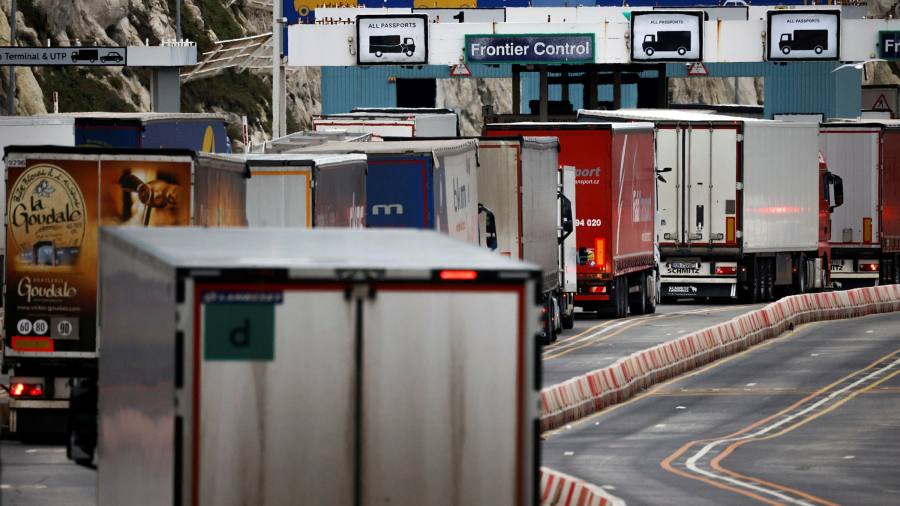[ad_1]
More than a third of British manufacturers have lost revenue since the UK left the EU trading bloc in January, as businesses struggle with border delays and increased costs from regulatory red tape.
Manufacturers are still struggling to cope with crippling delays moving goods in and out of the EU, according to Make UK, which represents British industry.
In a poll of members, almost a third said that they were experiencing delays of up to two weeks when importing supplies or exporting products to the EU — a problem for an industry often reliant on “just in time†delivery of parts for key sectors in car making and aerospace.
Many manufacturers complain that goods are still being delayed in transit or turned away because shipments had the wrong paperwork. More than a third have lost revenue, Make UK said, while one in five complained that they had lost potential business.
Over half said that border disruption had increased costs, with almost three-quarters of companies experiencing delays in the past three months. The survey covered more than 210 manufacturers across the UK.
Stephen Phipson, chief executive of Make UK, said: “Government needs to smooth out difficulties at UK ports so that shipments can easily be delivered.â€Â
Manufacturers have called for assistance with export documentation, better trained customs staff and systems to mitigate problems at ports in and out of the EU, as well as clearer guidance on import-export paperwork.
In response to business concerns, the government has promised to train thousands of new customs agents. Next week, the government is also expected to unveil a new scheme to help smaller businesses cope with the burden of Brexit red tape, with up to £2,000 available for training or professional advice.
Even so, Make UK pointed to widespread problems with the system. Many container ships will not even stop in the UK, it said, to avoid delays at British ports.Â
“This is resulting in goods bound for the UK being offloaded in EU ports, impacting heavily on production schedules and lead times with companies forced to make alternative and costly arrangements to have their orders delivered,†it said.
Businesses also report that rules for movement of goods are being interpreted locally within the EU and also at UK ports, meaning further costly delays.Â
Ministers have convened a Brexit task force that meets regularly to talk to businesses about the problems caused by Brexit. The most recent meeting was co-chaired by Lord David Frost, the Cabinet Office minister who has taken charge of Britain’s post-Brexit trade plans.
Last week, Lord Frost caused concern among business leaders over what they see as an abrasive approach to dealing with Brussels, which has led to conflict over the future of the trade deal and in particular over trading arrangements for Northern Ireland.
Phipson said: “Government should look to quickly get back around the table with our EU partners to find a way to mitigate against ongoing delays at the border and iron out different interpretations of the rules for movement of goods in separate member states.â€
[ad_2]
Source link





